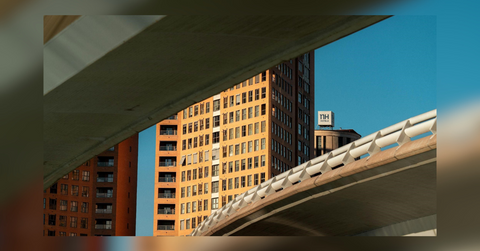 NEWS
NEWSHow Rafi Haikal Is Helping Shaping Urban Development Between the U.S. and Southeast Asia

Aug. 25 2025, Published 1:24 a.m. ET
Southeast Asia is a rapidly growing area, with projected GDP growth in the region even outpacing China. In the midst of this economic growth comes increased urban development opportunities, particularly for those with the vision and initiative to identify and act on them.
Rafi Haikal is deeply involved in shaping urban development in the region, particularly through his unique position with a U.S.-based organization. By emphasizing cross-border collaboration, Haikal’s approach to projects in Southeast Asia are having a meaningful impact for local communities and U.S. design firms alike.
Driving Institutional Expansion Through a Specific Focus
Haikal’s contributions to the ASEAN area begin at Urbahn Architects, an architectural firm based in New York City with 80 years in business. While Urbahn Architects was well-established in the United States, Haikal recognized a distinct opportunity as the firm sought to expand to international markets — in particular, Indonesia.
“Southeast Asia, and Indonesia, in particular, are areas with major urban development plans,” Haikal says. “With its current capital Jakarta threatened by rising sea levels, the country’s $35 billion investment plan to construct the new capital city of Nusantara is an incredible undertaking. This has created a very real opportunity for U.S. design firms in the years ahead. Firms that bring innovative solutions that match the strategic vision for Indonesia have the opportunity to create an incredible impact on a global scale.”
Haikal’s recognition of this potential led him to incentivize a joint venture with Urbahn Architect’s partners to expand to Indonesia. Haikal led feasibility studies and fundraising to launch Urbahn International, which took the New York design firm’s legacy to a completely new market.
Creating the Links Between the U.S. and Southeast Asia
Haikal’s contributions to urban development between the U.S. and Southeast Asia have extended well beyond those initial expansion studies. Following the launch of Urbahn International in Jakarta, Haikal has developed the firm’s strategies for regional project acquisition, particularly through engagement with government organizations and local design partnerships.
To date, the firm has already worked on several projects throughout Indonesia, such as the UIM Satellite Campus educational facility in Lampung, the Sanur SEZ Health and Wellness Complex in Bali, a boutique hotel in Atambua and other private residences in Jakarta.
Want OK! each day? Sign up here!
Though Haikal is not a licensed architect himself, his design planning, development strategy and project positioning have ensured successful early stage planning of these and other development projects, particularly in public and private alignment regarding scope and design. Haikal’s vision for urban development has also enabled him to coordinate effectively with subcontractors, developers and clients.
Leading the ASEAN market development strategy from Urbahn’s headquarters in New York, Haikal has also continued to advocate for stronger connections between the U.S. and Southeast Asia. For example, in November 2023, Haikal co-hosted the Design & Business Forum: Opportunities in Nusantra event at the Consulate General of the Republic of Indonesia in New York City to increase awareness of Indonesia’s urban development among U.S. design firms.
Haikal’s additional efforts to promote collaboration in sustainable development, investment access and public-private partnerships have played a valuable role in connecting design firms with opportunities in Indonesia and other parts of Southeast Asia.
Creating Social, Cultural and Economic Impact
For Haikal, facilitating projects between U.S. design firms and Southeast Asia isn’t just about increasing the bottom line. He has remained focused on driving inclusive growth that delivers meaningful social, cultural and economic impact with each project.
“Undertakings like Nusantara are complex and ambitious — the country is literally taking steps to build the future of its nation,” he says. “Architecture is a powerful tool for nation-building. This requires cultural sensitivity in our design work, where we incorporate both progressive environmental designs while still honoring and incorporating local traditions and national identity. Making sustainability and cultural identity work in harmony is incredibly rewarding, and it ensures that the work we do will have an impact well into the future.”
In addition to his design planning and development strategy contributions, Haikal also mentors emerging design talent. He believes that by passing on his passion and vision to rising architectural professionals, more projects in the U.S. and Southeast Asia can have the type of long-term impact he is currently achieving in Indonesia.
A Vision for the Future
Haikal’s contributions to the architecture and design ecosystem, particularly in building stronger connections between the U.S. and Southeast Asia, have had a notable impact on a wide range of high-impact projects in the region.
With Indonesia’s ambitious urban development plan for Nusantara expected to continue for many years to come, the influence of individuals like Haikal will only become more pronounced, influencing U.S. firms and ASEAN design projects alike.

